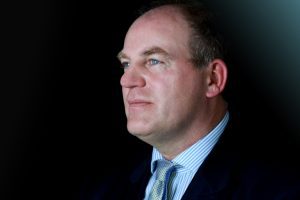
Senior Partner, Practice Leader - Geostrategy
While geopolitics was originally coined to describe the analysis of geographic influences on power relationships in international relations, recently it has come to be seen as an umbrella term for international politics. In a globally connected world, where domestic political developments can rapidly affect international markets, it is no surprise that there is a burgeoning geopolitics industry which seeks to provide an understanding of events, an explanation of decisions and a prediction of outcomes for its various clients.
This is all valuable advice and it provides the backdrop to many investments and strategic political decisions. However, there is a deeper insight which is often overlooked and sometimes avoided. It relies on acknowledging and understanding the ultimate frailty inherent in all geopolitical activity.Humans.
A naturally occurring seismic event becomes a natural disaster only because of its impact on humans; precious metal discoveries become the objects of conflict because it is only to humans that they are considered precious; natural resources are only considered so because of their value and utility to humans. The list of examples is infinite.
What makes understanding geopolitics really valuable, therefore, is not just knowing about events, discoveries and resources, or understanding how they may affect commercial activity and predicting probable outcomes. It is understanding the full spectrum of human dynamics around them.
The higher the stakes, the more fragile the human dynamics. The difference is Newtonian. Are we content to simply know that apple trees grow apples, understand that the apples will fall, and reasonably predict they will fall in autumn? Or do we also want to understand the natural forces acting on the tree and be able to explain why apples fall downwards?
Influence covers all human relationships, from explaining an autocrat’s continued grip on power in defiance of reason to advocating wider recognition of the Zulu language as a means of unity in South Africa. It can be malign and benign, implied and inferred, passive and active. It is the root of power and the exercise of purpose. It can be fleeting, where a word said or an article read will determine a decision by a single individual that can impact millions. It can be steady and measured, changing perceptions over time which change the future of the planet and our stewardship of it. It is all around us and yet remains invisible to us. We feel it but can never see it. It can be a force acting upon our subconscious and a means by which we can force others to our will. It can increase our value, decrease our worth and we ignore it at our peril. Geopolitically, it is the matrix of complex micro-relationships which determine macro-outcomes and impact.
So, understanding human influence is the geopolitical equivalent of understanding the forces of nature on an apple tree and the forces of gravity which makes apples fall downwards. In his 5th Century work ‘The City of God’, St Augustine of Hippo wrote ‘Let those who lust for power grasp it; politics is a sordid wicked affair’. This is a sentiment that will resonate for many people 1500 years later as it is a simple comment on human motives and their relationship to power. But the key levers of power, whether money, might or merit, are an illusion without human influence.
dynamics. Whilst politics is the science of understanding power, influence is the art of exercising it. If you understand influence, you understand geopolitics. Human influence exists in three basic forms, with active and passive characteristics. Coercion, Compulsion and Consensus each act in different ways and will be covered in more detail in my next piece.
Perceiving their application, studying their execution and gauging their success can be the key to a better understanding of the world around us, our place within it and our responsibilities for it. For those with access to or control of the key levers of power, understanding the human influence terrain will make us wiser and more astute in how we act in the contested and complex geopolitical landscape.
Our next generation services are your first step to making Leadership & Resilience, Sustainability and Geostrategy central to your family’s future investments, businesses, achievements and legacy. Positioning you to manage related risks while realising vast opportunities.
itriom.com
enquiries@itriom.com
T: +44 (0)203 198 2277
© 2024 Itriom Limited. All rights reserved. Republication or redistribution of Itriom’s content, including by framing or similar means, is prohibited without the prior written consent of Itriom Limited. This material is provided for informational purposes only.




© 2023 Itriom Limited. Company Registration Number 134815 Jersey Financial Services Commission. Registered Office 9 Bond Street, St Helier, Jersey, JE2 3NP
ESG Consultant
Alizah is an ESG Consultant and researcher. She supports Itriom developing sustainability related products and services, helping our clients identify potential opportunities for creating positive environmental, social and sustainable impact.
ESG Analyst
Georgie is an ESG Analyst and researcher. She researches trends, develops insights and reports, and writes insight articles on sustainability and ESG related topics to ensure Itriom’s clients are up to date on the latest policy, progress and initiatives to inform the platform and help our clients maximise their positive impact.
Senior Partner
Practice Leader – Leadership & Resilience
Renowned family office thought leader, Tim works with UHNW families to ensure they are fully equipped to deliver their legacies inter-generationally and effectively.
Associate Partner
Practice Leader – Sustainability
Dr. Herb creates methodologies and frameworks for managing, measuring and assessing sustainability performance. His work identifies where maximum impact can be made.
Senior Partner
Practice Leader – Geostrategy
Simon harnesses research, liaison and networks globally to identify opportunities for Itriom, building the knowledge needed to deliver intergeneration legacies for UHNW families.
Managing Partner
Practice Leader – Strategy